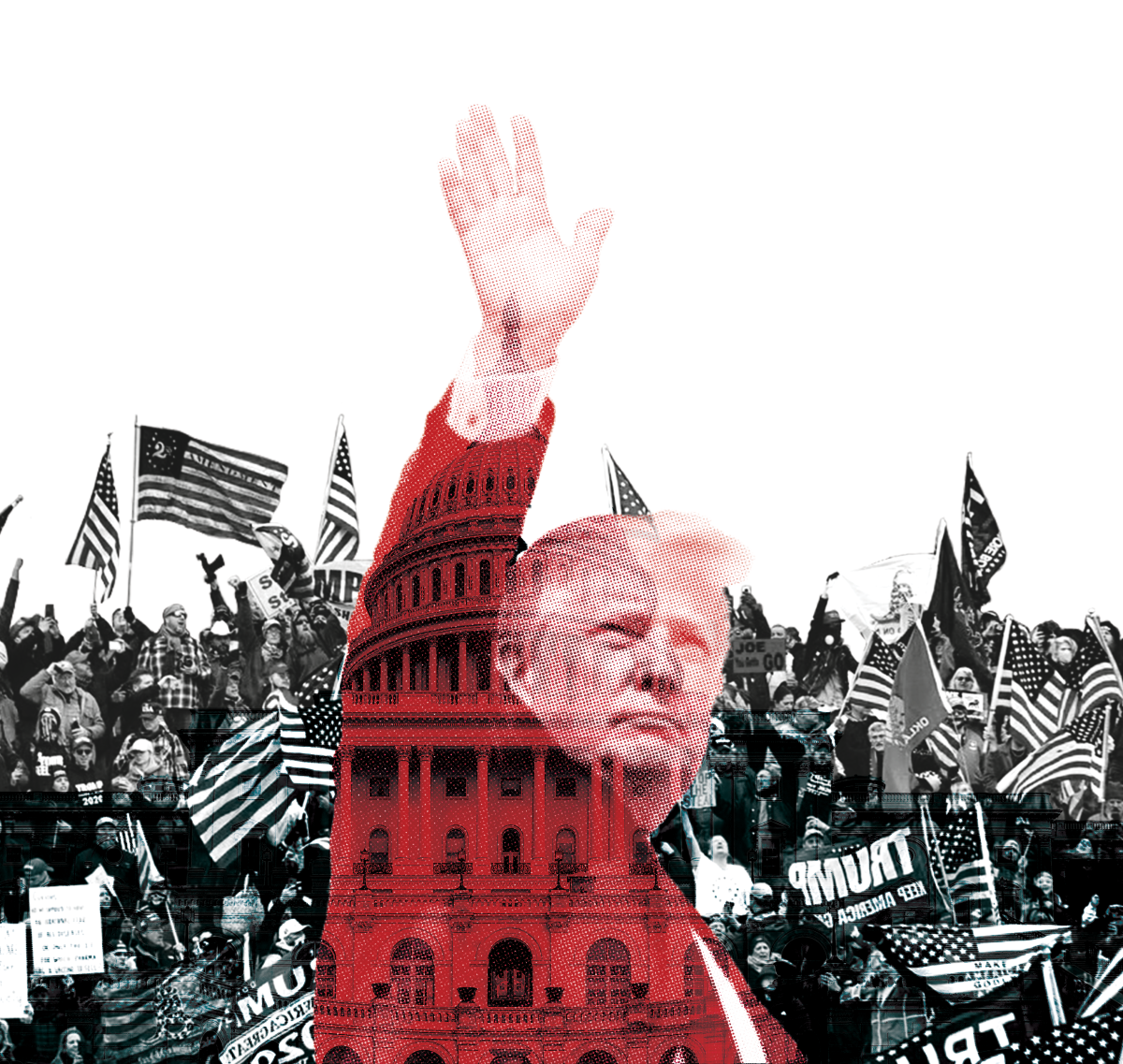After two assassination attempts, countless verbal attacks, felony charges and debate stage absences, former President Donald Trump will once again hold the Oval Office and asserts himself as the decisive protagonist of the American political landscape.
A telling victory saw Trump win both the Electoral College and popular vote, the likes of which have not been seen by a Republican candidate since George W. Bush in 2004.
For some, this victory has been seen as a monumental failure by the Democrats to come up with a party platform that differentiated from Biden, or as Opinion Editor Skye Crawford explained, the manipulation of marginalized communities.
While I agree that the Democrats saw extreme setbacks in this election, it isn’t the full picture as to why Trump won. Trump simply pushes boundaries and makes promises others don’t dare to make.
Trump has controlled the American political conversation ever since he began talking about his genitalia on the GOP debate stage in 2016. His left-field and back-handed comments are a part of the brand he makes for himself — it is his way of solidifying himself as an outsider even after his third campaign for president.
Such comments have led him to err on the side of conspiracy theories countless times over the course of his political career. From the QAnon theories, which paint Trump as freeing America from satanist sex-traffickers, to Trump’s claims about Haitians eating cats and dogs and the Great Replacement Theory, one which holds that Democrats are bussing in immigrants to replace white voters.
Trump’s endorsement of these theories has caused upheaval within the Republican Party over the course of his eight years at the helm of the party, as solidified in the endorsement of such theories by many GOP lawmakers, such as House Speaker Mike Johnson’s endorsement of the Great Replacement Theory.
Just over a year ago, I wrote an article which argued that these endorsements would tear the Republican Party apart, that conservative voters and moderates would be disenfranchised by such claims. Yet, a year later, the Republicans are arguably stronger than they have ever been, with a conservative court, a conservative Congress and conservative commander-in-chief — a sweeping mandate set to change our political landscape.
Therefore, these tactics didn’t hamper the Republicans but instead invigorated them like never before.
One must look no further than the passion at the GOP to see the cult-following Trump has created, with supporters sporting bandages on their ears and the likes of Hulk Hogan bringing a macho aura along.
Did it work? Yes. But I wish it hadn’t.
Make no mistake — this victory is no celebration for American democracy. But it isn’t fully Democrats’ fault that Trump won. His perpetual controversy has given him stardom, and with that stardom comes a group of loyal disciples.
I have interacted with many of these disciples before, whether as a friend or as a citizen looking to understand. Of course, such experience is somewhat anecdotal, but I have asked myself this question over the course of the election: What are the issues that Trump supporters find most important?
From this experience, I found myself having to actually give them examples of issues to care about, such as the economy, immigration, reproductive rights, et cetera. For most, the issue came down to religion — who would God approve of more?
Perhaps therein lies the irony. The juxtaposition of a moral-issue voter with a candidate with felony convictions and a long list of sexual harassment allegations, not to mention multiple divorces.
All of this is to say that he has marketed himself well. Trump has been able to come up with a coalition of voters who can rationalize almost anything in order to stand by him. To this end, Trump’s political career has been the awakening of American domestic terrorism, especially due to these conspiracy theories.
As Trump builds his following in such a matter, he has characterized the Democrats as much as himself — the Democrats have centered their candidate as the Trumpian antagonist, the “we’re not him” of American politics.
However, with all of these moralistic assertions and need for “refreshed politics” comes the sour taste of irony as the loyalist cabinet comes to the plate; with the likes of a pedophile to head law enforcement, an anti-vaxxer to regulate health, a Fox TV host to lead the military and a tech tycoon to advise funding for what is destined to be a circus of Trump-centric loyalism.
Gone are the days of meritocratic picks like Antony Blinken, who worked his way through the foreign policy chain into his current role as secretary of state. Loyalism may just be the new name of the game.
And with all of these assertions, Trump is bound to change the political landscape even further, as election conspiracy theories begin to gain popularity on the left, as they did amongst the right just four years ago. Ask yourself — before Trump, was any of this imaginable?
His political style is a whirlwind of false claims, fear mongering conspiracies and mediocre political choices, yet one thing that no one can deny is that it works.
To that end, the American people have spoken. For what comes next for our country, we have no one to blame except ourselves.














